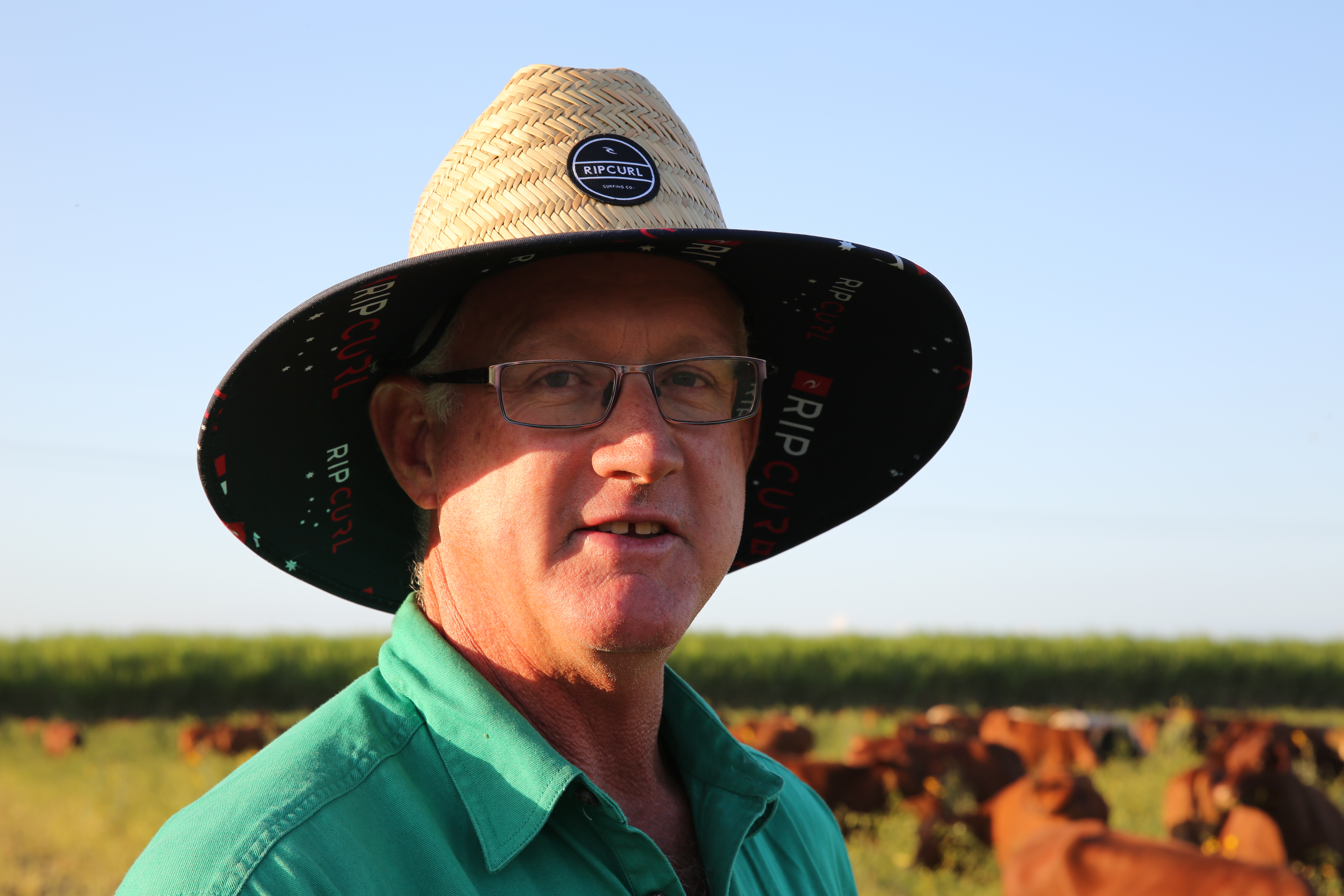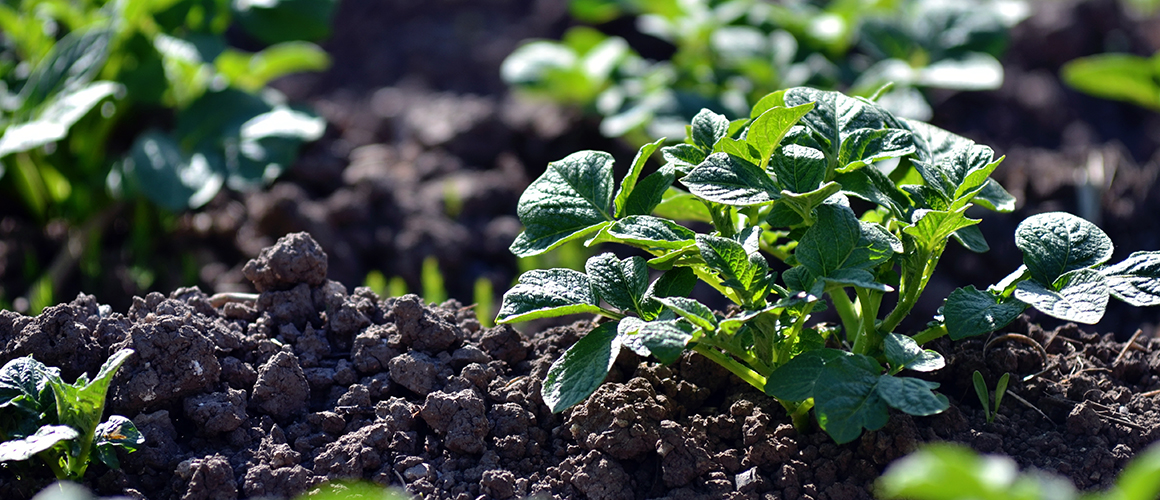
PREDICTA Pt training and accreditation course scheduled for July 2018
14 May 2018
Dr Nicola Watts: Passion for fresh food and the community inspires Cluster leader
14 May 2018Third-generation farmer Gary Spotswood is full of ideas and his passion for the land is unwavering. Gary runs a mixed farm in far-north Queensland, which includes a seasonal organic vegetable growing operation, and he spoke to AUSVEG about his journey to becoming certified organic, the challenges it presents and his philosophy on soil health.
Fast facts
Name: Gary Spotswood
Location: Inkerman, QLD
Works: Mt Alma Fresh Organics
Grows: Zucchini, chilli, pumpkin, watermelon, mango, sugar and sugar cane
Gary Spotswood is a big thinker – always thinking of ways to add value to his growing operation and integrate practices that benefit all facets of the farm, whether it be sugar cane, cattle or organic vegetables.
A third-generation farmer, Gary and his wife Angela run Mt Alma Fresh Organics, located in the Burdekin Shire town of Inkerman, 80km south-east of Townsville in northern Queensland. The pair own 430 hectares of land that produces organic beef, organic vegetables (including zucchini, seedless watermelon, chillies and pumpkin), mango and organic sugar, as well sugar cane under conventional farming.
After dabbling in vegetables for over 15 years, Gary and Angela decided to increase their production in 2010 and Mt Alma Fresh Organics became fully certified as an organic vegetable grower in 2015.
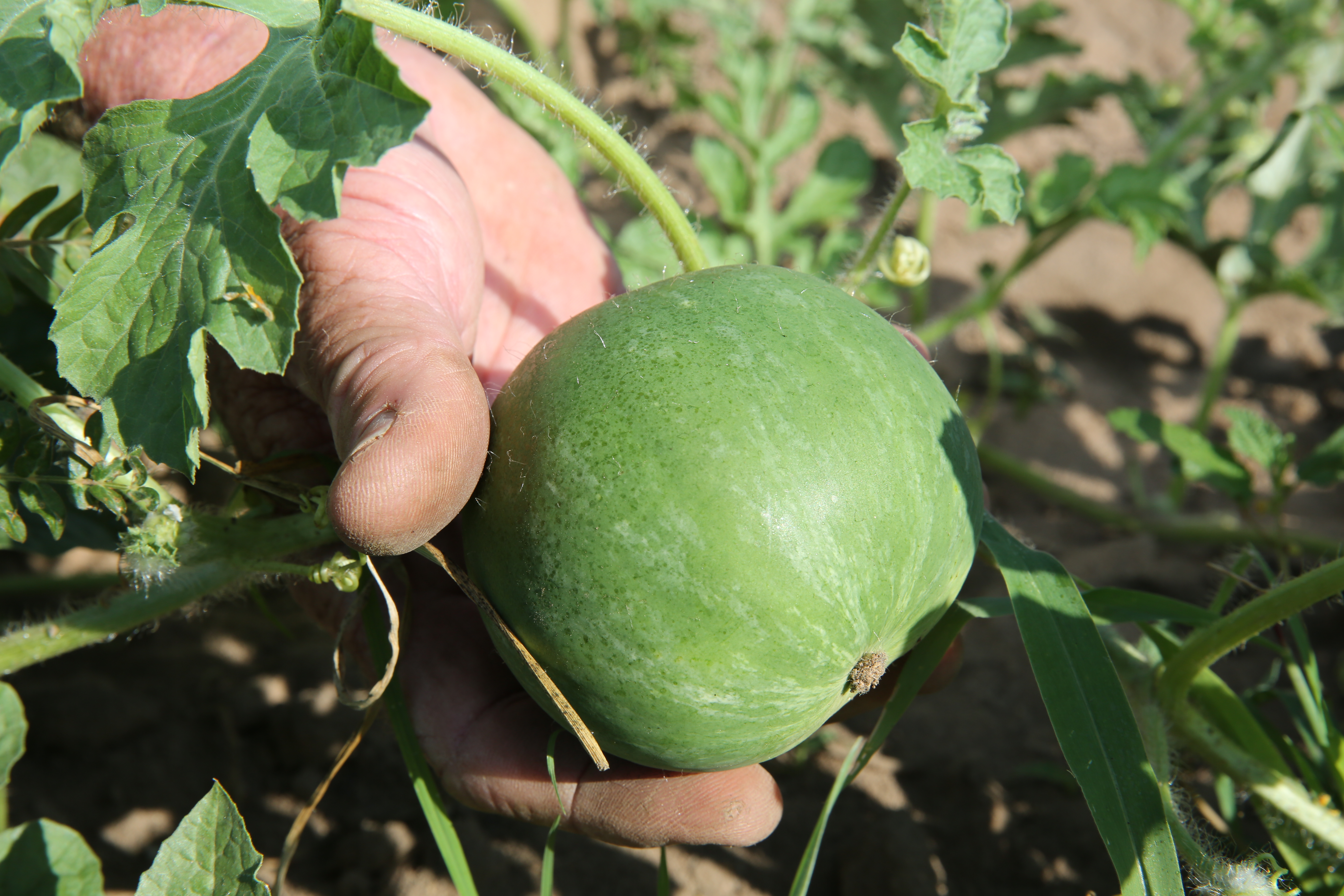
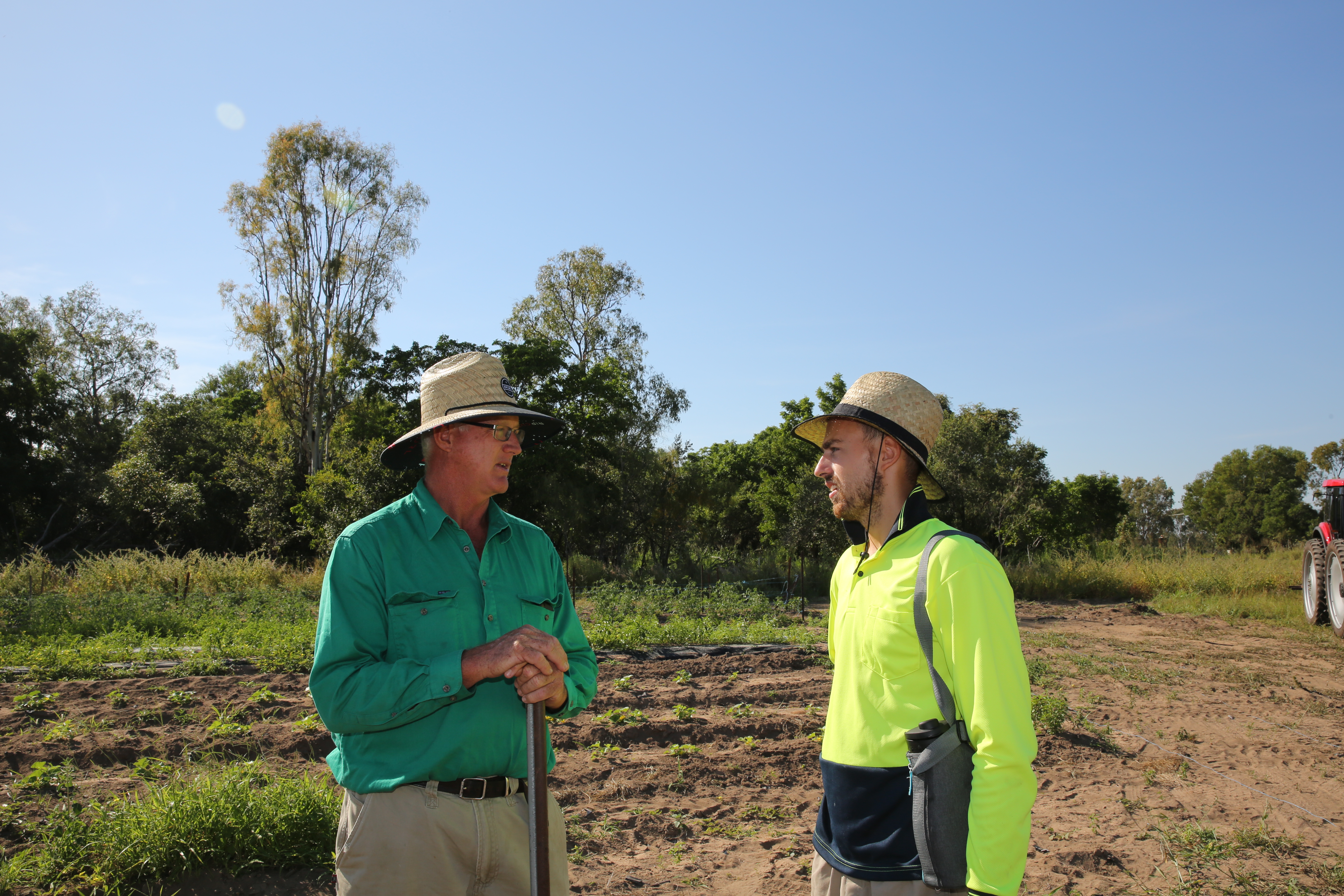
Following an organic path
The decision to move to organic farming practices was influenced by a friend of Gary and Angela’s, Wayne Shields from Peninsula Fresh Organics in Victoria.
“We looked at a way of value-adding what we’re doing here. Instead of getting a bigger farm, we diversified by having a few different lines of organic and it all flowed on with soil health, and all the other benefits,” Gary says.
The business would have been certified earlier, but Gary says that as farmers and not fans of paperwork, they took a while to submit their application to become an organic growing operation. Once they did, it was a three-year process: the first year was pre-certification, followed by two years of conversion before produce was accepted into the supermarket chains.
Now, Mt Alma undergoes stringent chemical-residue testing of its soils along with annual audits for three organisations – Australian Certified Organic, the United States Department of Agriculture and Freshcare.
Being an organic vegetable grower does present its challenges, particularly in northern Queensland, as Gary explains.
“In the north, we actually do find our window for organic vegetable growing is a lot smaller than the conventional system,” he says.
“We have a lot more tools in the toolbox, but if you have a chemical system you can prolong the season later or earlier. With an organic system, we get to grow more within our seasonal window and don’t try to push the boundaries; but as we improve the soil health, the crop becomes healthier and stronger in its own regard.”
Mt Alma’s organic vegetable growing season begins in mid-May until October. This is followed by mangoes at the end of the year.
"We’re very different in Australia, everyone is a closed shop; whereas if you go to Europe, everyone’s more willing to help each other. Here, it’s a bit more like everyone’s trying to compete with each other – and what we should be doing is trying to help each other because if we do, we end up with a better result."
Focus on healthy soil
Given Mt Alma Fresh Organics is an integrated farm, Gary believes in having 100 per cent ground cover. If there is bare ground, a legume crop or a multi-species crop is planted.
“We use the cattle on part of our certified organic land to do the organic mulching. We bring them through high density grazing on our land, and that’s an easy way of composting,” he says.
“We also buy-in chicken manure pellets, and blood and bone pellets – in a horticulture system, it’s a very fast season and it’s very hungry. We can’t produce enough inputs on-farm as of yet, so you still have to supplement the soil.”
Another key to healthy soil is organic carbon, Gary says.
“If we increase our organic carbon in our soil by one per cent, we’d actually store 144,000 litres of water per hectare more in our soil that doesn’t runoff,” he says.
“That’s plant-available water, so I look at our focus on the holistic part of it now – and that is to increase organic carbon in our soil. By doing that, we store more water; we reclaim more nutrients; and we use less electricity to pump water. It’s a win-win. Our main focus on anything we do is to improve organic carbon – whether we’re organic or conventional – and how we can utilise everything in our system.”
Gary sees soil health as “the next frontier for everyone”.
“If we focus on soil health, we’ll improve a lot of our supply chain issues. That gives us suitable, better quality fruit and vegetables, a longer shelf life through soil health and improving a better mineral balance using natural inputs – and that’s probably on the organic side that I push a bit more.”
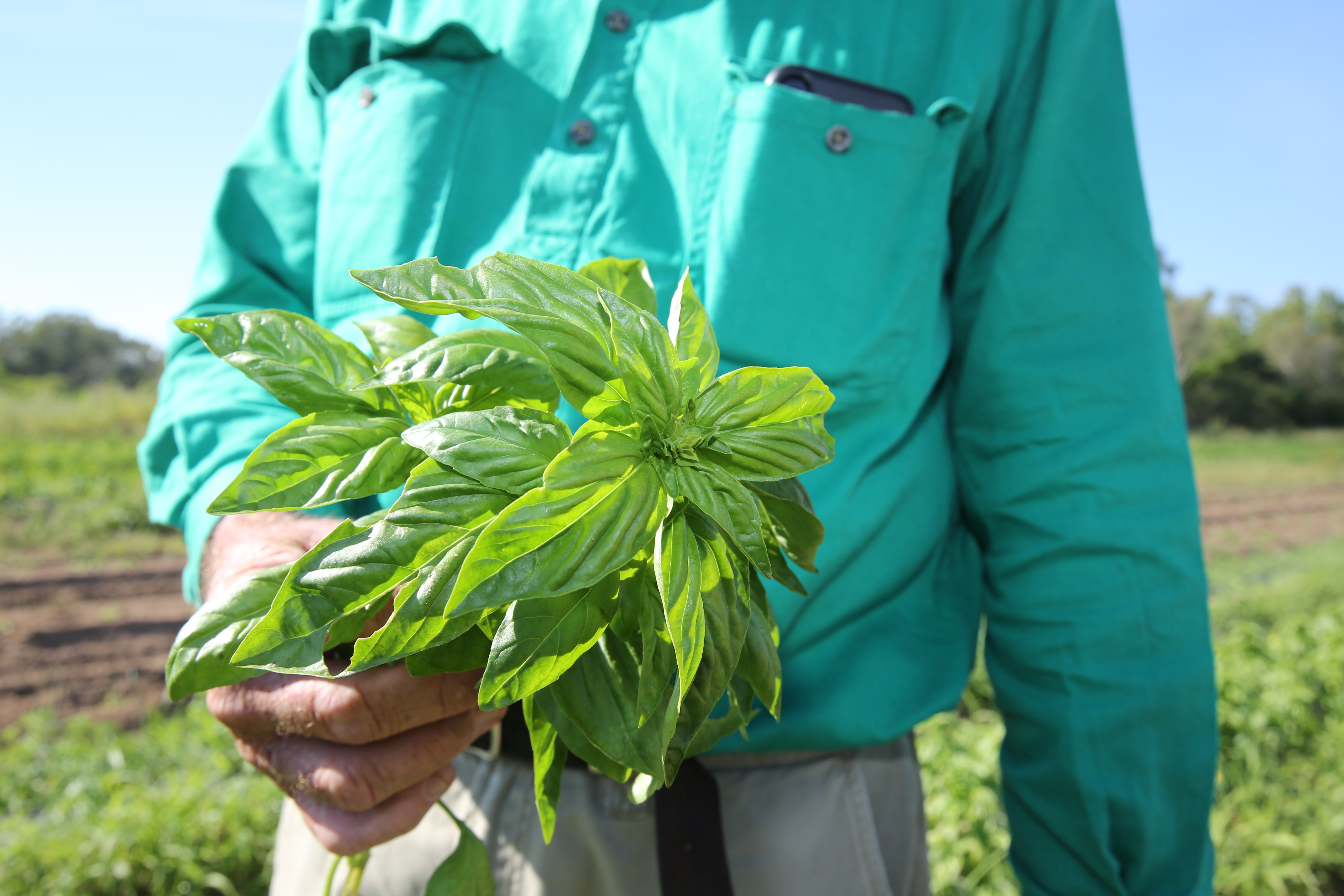
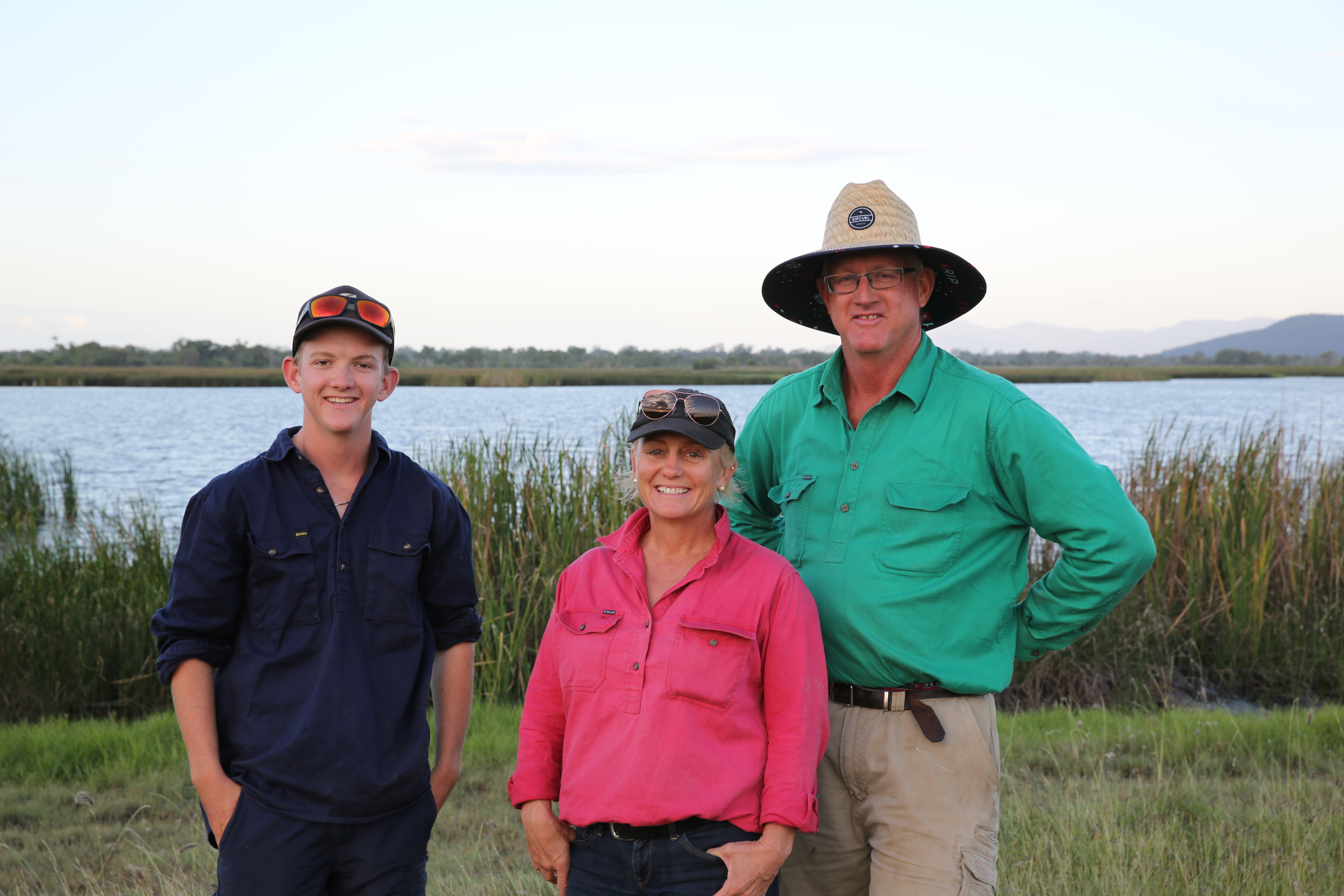
Grower on a mission
Gary’s mind was opened to the rest of the world in February when he attended the Berlin Fruit Logistica trade show as part of the 2018 European Industry Leadership and Development Mission (VG15701), a strategic levy investment under the Hort Innovation Vegetable Fund.
“You can see the way the industry is heading in the robotic department; for example robotic weeders – new technology in the way of combating weeds and beneficials. We found it very interesting.”
As a result, Gary is considering trialling a robotic weeder to help reduce labour costs.
“We’ve got to start automating things. I‘ve found that the highly technical side in Europe seems a lot more advanced. We’re only trialling things out here that they’ve been using for the last five years or so, and it seems common practice in Europe,” he says.
Additionally, Gary found great benefit in the networking opportunities presented on the mission.
“There were growers from Victoria to South Australia and Brisbane – all at different stages of growth. It was quite good; there was three organic growers on the tour and four conventional, so we had quite a good discussion,” he says.
“I think that’s probably more important (networking within Australia) because we’re still a small industry; we can leverage between ourselves to create those export markets. We need that supply chain to grow all the way from north Queensland to Victoria to meet a year-round supply.”
Pride of place
Gary’s family has been farming in the Burdekin region for almost 100 years, and it is this rich history that he is most proud of.
There have been numerous changes to the business landscape, and the demand for organic vegetables is growing. To maintain that steady supply, Mt Alma Fresh Organics employs workers from the Solomon Islands through the Seasonal Workers Programme. Each year, these workers return to Australia to assist Gary and Angela.
“We’ve found that the seasonal workers are here for six months and we can train them to our practices. We know that they can come back every year and they’re used to the system,” Gary says.
The future of the farm and who will take over as the next generation is currently unclear. Gary and Angela’s 19-year-old son, Daniel, is currently completing a Certificate III in Horticulture and Agriculture. While a takeover has been discussed, there is no pressure on Daniel, or on Gary and Angela’s daughters Chloe and Rochelle, who are both working in other industries interstate, to follow in their father’s footsteps.
Gary notes that today’s farmers don’t just have to be driving tractors, as there are now so many diverse roles needed in the industry – from drone pilots to quality assurance to robot weeder programmers.
“It’s available for anyone and if no one wants it just yet, so be it. It’s still going to be here as part of their family history, that is certainly clear,” Gary says.
“I feel we’re losing that in the shape of family farms; we’ve got to bring them back into flavour again. Family farms are the most economical ones that can keep surviving compared to a corporate operation.”
This grower profile first appeared in the leading magazine for the Australian vegetable industry, Vegetables Australia. If you’d like to subscribe to receive a new edition of Vegetables Australia in your mailbox every two months, use our online subscription form!
Photography credit: Fiona Lake

